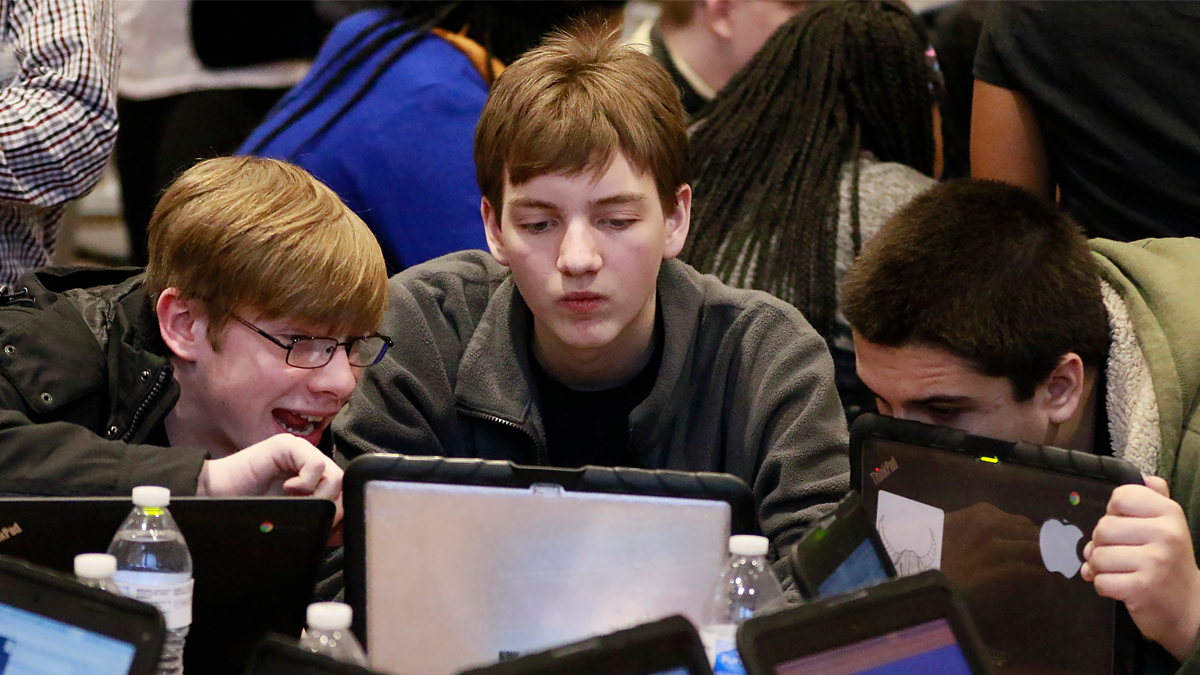Keny Ramirez and Linet Rivas visited Butler University on Tuesday, February 12, thinking they might be interested in some kind of computer career. They left feeling even more certain.
The 10th graders from Shortridge High School made the trip to campus to participate in The Alliance Cybersecurity Converge Tour, a three-hour exploration of potential jobs in computer security, along with lessons in how to protect themselves from scammers.
“I’m definitely thinking about it,” says Ramirez.
The event was part of a partnership between Security Advisor Alliance (SAA), a nonprofit serving the cybersecurity industry, and Butler’s Information Technology office. SAA approached Eric Schmidt, Butler’s Chief Information Security Officer, who thought the session would be a good way to bring students to campus and give them information about potential careers.
Shortridge and Purdue Polytechnic High School brought about 40 students total to the Reilly Room, where they heard some startling statistics about the cybersecurity industry, played a game of Capture the Flag (on computers, of course), and heard from professionals about career options.
The students heard that cybersecurity is an $87 billion industry annually, and it’s growing by 30 percent a year. Gaming, by comparison, is a $70 billion industry, growing by 5 percent a year. Not only that, but 1.5 million computer security jobs are currently open, as the industry tries to stop the $2 trillion in cybercrime that takes place each year.
The industry is looking for more women, and more people of diverse backgrounds. Diverse backgrounds, they were told, equals diversity of solutions for stopping hackers.
They also heard about scams like “vishing”—people who pretend to be from reputable companies and get their victims to reveal personal information like credit card and social security numbers—and were schooled in the benefits of “password hygiene”—creating a password that cannot be easily guessed.
Sidney Plaza, Executive Director of SAA, says her organization wants students to understand that hacking into computers is just one way thieves steal information. Sometimes, people unknowingly give away their information.
“It’s the human element,” Plaza says. “It’s not just 1’s and 0’s; it’s people making decisions.”
Taft Davis, who teaches engineering and computer science at Shortridge, said the International Baccalaureate school is adding cybersecurity courses next year. He wanted his students to attend the session at Butler to give them an idea of what cybersecurity is and gauge their interest in a career.
“Like they said, it’s a wide-open market out there, and it’s just going to get bigger,” Davis says. “Every company needs protection.”


